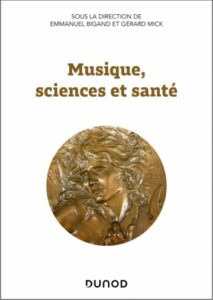The therapeutic use of music
Based on recent scientific research, this book explores the importance of music in relation to physical and mental health and well-being.

For several decades, specific or multi-sectoral scientific research has been examining the therapeutic benefits of music, its curative action on physical and psychological pathologies, and its contribution to well-being. Neuroscience has confirmed the importance of music in stimulating brain functions such as memory, movement and pleasure, helping to prevent or alleviate neurodegenerative disorders and chronic suffering. The book, published by Dunod, brings together contributions from 20 authors specializing in their field, including researchers in cognitive psychology, physicians, musicians, music therapists and neuropsychologists, and is structured into four main sections, each divided into chapters. Among the topics covered are the place of Euterpe's art in human evolution and society, medical ethnomusicology, perception, emotions and different forms of musical memory, the influence of knowledge and expectations, the acquisition of tonal perception, correlations between rhythm and motor skills, the usefulness of musical interventions from early childhood to palliative care, including clinical applications of listening as an analgesic (especially with live performers in situ), as an aid to language learning or to improving attention, hearing problems and damage, possible misuses of hearing, musician pathologies such as musculoskeletal pain associated with instrumental playing or neurological diseases, and their prevention. Completely accessible to the uninitiated, this vast survey of knowledge also highlights what musicians and music lovers experience on a daily basis, and demonstrates the preventive aspect and benefits of listening to and practicing music.
Musique, sciences et santé, edited by Emmanuel Bigand and Gérard Mick, 352 p., € 32.00, Dunod, Malakoff 2024, ISBN 9782100800261








